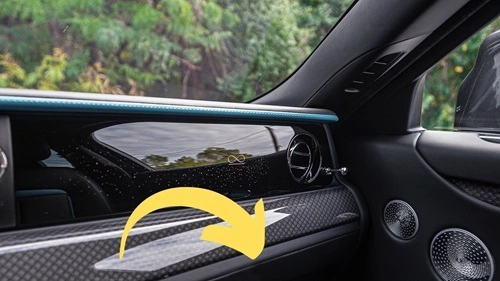Yes, putting an AirTag on someone’s car without their consent is generally illegal in the United States. While Apple’s AirTags were designed to help people track their personal belongings, their misuse has raised significant legal and ethical concerns. Unauthorized tracking with an AirTag can violate state and federal laws, exposing individuals to criminal charges and civil liability.
Legal Framework Surrounding AirTags
Federal Laws
Under federal law, unauthorized tracking using an AirTag can potentially fall under stalking statutes. For example, the Interstate Stalking Punishment and Prevention Act makes it illegal to use a tracking device to follow or harass someone across state lines. Violations can lead to severe penalties, including imprisonment.
Additionally, the Electronic Communications Privacy Act (ECPA) may be invoked if the AirTag’s use involves unauthorized interception of electronic communication or tracking data.
State Laws
Many states have specific laws prohibiting the use of tracking devices on vehicles without the owner’s consent. For instance:
- California: Penal Code 637.7 prohibits using an electronic tracking device to determine someone’s location without consent. Violators may face misdemeanor charges.
- Texas: It’s illegal to install a GPS tracker on someone’s vehicle without their consent, except in certain circumstances, like when installed by a parent on a minor’s vehicle.
- New York: Similar laws restrict unauthorized tracking, with penalties ranging from fines to jail time.
Some states carve out exceptions for law enforcement, private investigators with proper licensing, or parents tracking minor children.
Ethical and Privacy Concerns
Beyond legal considerations, using AirTags to track someone without their knowledge raises significant privacy concerns. Apple has implemented safeguards, such as alerts for nearby AirTags and audible pings to notify individuals of unwanted tracking. However, these measures are not foolproof, and some individuals have reported cases where AirTags were used for stalking or harassment.
Recent Cases and Developments
Several high-profile incidents have highlighted the misuse of AirTags:
1. Stalking Cases:
Reports have emerged across the U.S. of individuals using AirTags to stalk ex-partners or strangers. In many cases, victims were alerted by Apple’s safety features but only after prolonged tracking.
2. Theft Monitoring:
Criminals have been found attaching AirTags to luxury vehicles to track and steal them later, leading to a rise in complaints to law enforcement.
These incidents have prompted legislators to consider stricter regulations on tracking devices. For example, some states are reviewing their laws to ensure they explicitly address AirTags and similar devices.
Consequences of Illegal Use
If someone is found guilty of illegally placing an AirTag on another person’s car, the consequences can include:
- Criminal Charges: Depending on the state, this could range from misdemeanors to felonies, with penalties like fines or imprisonment.
- Civil Liability: Victims can sue for invasion of privacy or emotional distress, potentially resulting in financial damages for the offender.
- Restraining Orders: Courts may issue protective orders against individuals found using AirTags for harassment or stalking.
What to Do If You Find an Unauthorized AirTag
If you suspect that someone has placed an AirTag on your vehicle:
- Use the Find My app (iOS) or Bluetooth scanning tools (Android) to locate the AirTag.
- Contact local law enforcement immediately and file a report.
- Disable the AirTag by removing its battery after consulting authorities, ensuring proper documentation.
Common FAQs
Q1. Can law enforcement use AirTags to track suspects?
Ans: Yes, but only with proper legal authorization, such as a warrant. Unauthorized use by law enforcement can result in evidence being inadmissible in court.
Q2. Can parents use AirTags to track their children’s vehicles?
Ans: In most cases, yes, as long as the child is a minor and the parent owns the vehicle. However, once the child becomes an adult, this may raise privacy concerns or legal issues.
Q3. Is it illegal to track your spouse’s car with an AirTag?
Ans: Yes, unless the spouse consents. Tracking someone without permission, even a spouse, can lead to legal consequences in most states.
Q4. How can I protect myself from unwanted tracking?
Ans: Regularly check for Bluetooth devices near your location, use Apple’s safety notifications, and remain vigilant about unfamiliar sounds or alerts.
Q5. What should I do if I suspect stalking?
Ans: Contact local law enforcement and provide evidence, such as AirTag notifications or physical devices found on your property.


